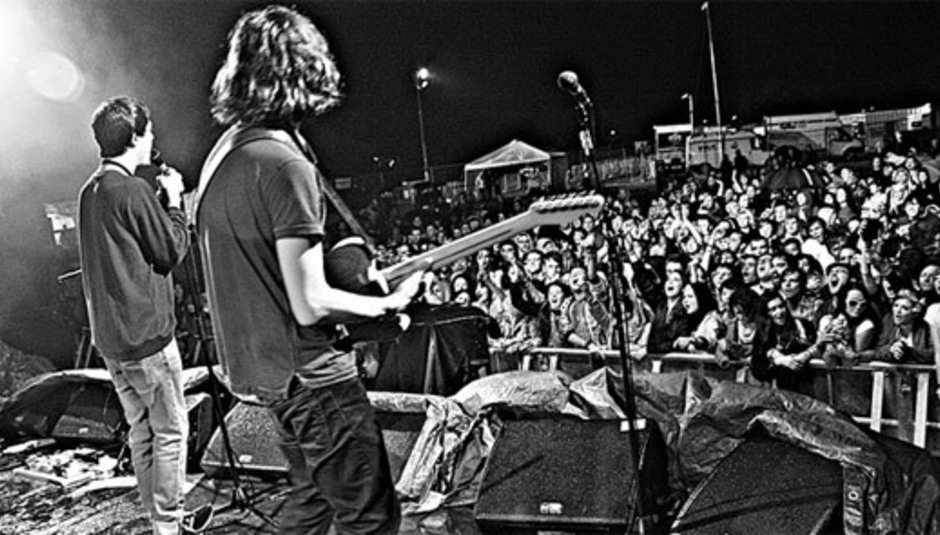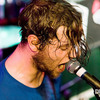We all remember last year's festival season as one of the most horrific in living memory. Well, if you went to ZOO8 you probably do, what with tales of artists being paid in wheelbarrows full of pound coins, one tap on the whole site and what seemed to be a pissup-brewery interface scenario epic fail.
There's no doubt that the economic slowdown (every phrase ever used has turned into a cliché, I can't come up with a better one...) affected a lot of decent festivals last year, forcing them to either cancel, or just be very shit. But if ever there was a year with a breaking point or saturation of festivals it was last year. Festival after festival was axed. Some of them even looked half-decent. How many more festivals do we need? A Mighty Boosh themed one for god's sake. Most of them had the same bands playing the same sets to the same sorts of people.
Even Norwegian fesitvals were being cancelled. Though the wheat has been sorted from the chaff somewhat, 2009 is still seeing festivals cancelled, including the enigmatically titled 'Indie Guitar Festival'. Oops!
Offset Festival started off in 2008 as a low-budget but high-quality alternative to the superfests such as Glastonbury and Reading/Leeds. Set in Hainault Forest, Essex it's close to London without really being IN it, which is always a bonus.
2009 sees a line-up including buzz-band of the millennium The Horrors, the re-united Slits join Future Of The Left, Rolo Tomassi, Throats and A Certain Ratio among the earliest batch o' bands announced.
We caught up with the Offset founder Kieran Delaney to see what he thought about the future of festivals in this country, and what Offset festival offers in the current economic climate (yeah, did it again..).
DiS: Where do you see Offset in five or ten years time?
KD: We're aiming for Offset to become the outdoor festival that continues to take risks and put on credible, forward-thinking music to a passionate audience.
DiS: Where do you see the future of festivals in general?
KD: Last year saw the first real backlash caused by over-saturation, which resulted in a lot of events folding. We re-launched our festival into that market knowing that we weren't trying to take on the likes of V Festival or Glastonbury, and there was a real proliferation of events that felt a bit like second stage at Reading.
On the whole, people seem unfazed by larger corporations putting together festivals or part-owning large events but the strength of small and passionate events will continue, which is a great thing. Summer festivals are now a large part of Britain's identity, but hopefully quality will win over quantity - a smaller number of excellent events will ensure the rest of the industry continues to look to the UK.
Technology will continue to play a bigger role. Blogs and social networks are helping people find out about smaller events that don't make it into the mainstream press. The ease-of-access to music has meant that consumers can experiment more with artists they may not have tried before, and has shifted taste-makers from untouchable figures in the press to the person you're friends with on Facebook, the guy blogging from his bedroom, the recommendation in Spotify or the topic on DiS.
DiS: Where did it all start for Offset?
KD: It started with a one day event in a disused theatre, with 8 bands playing for free to raise cash for a struggling children's hospice. While the "headline" band was performing, some bright spark suggested we put an event on outside that summer, which ended up becoming a 4 stage event with an entry price of about £4! Under the name TMF Festival, the event grew and showcased the likes of Biffy Clyro, Eighties Matchbox, Art Brut, The Duke Spirit and Martin Grech. In 2006 we decided to take a couple of years out, find the perfect venue and start a weekend-long event that offered an alternative to anything else available throughout the summer.
DiS: What sort of crowds do you get, expect to get and hope to get?
KD: Our audience is diverse, but made up of people who are passionate about music. Our audience is young but have an appreciation of forward-thinking music and where it comes from - it's great to put a young audience in front of an artist like Gang of Four and see so many people singing along.
DiS: What is the ethos behind the Offset?
The aim for us is to join the dots between new and creative artists, and their influences. It's not about looking back but it's about seeing legendary artists like The Slits sharing a bill with a band like the Horrors who have just produced a fantastic second album, or Factory Floor who have only released a 7" but are bursting with ideas, and offering a completely unique live performance. We keep our ticket prices low (tickets start at £35 for a full weekend) but offer around 150 artists and a beautiful setting.
DiS: Do you think that with the economic downturn we'll see more people flocking to festivals where they can get a ticket for under a hundred quid, and forgoing the big names to save a few bob?
KD: I believe the current climate will see people make educated choices about the events they go to. A good festival can substitute a week’s holiday, but people will still look towards that event offering more than a stage with a handful of C-list pop bands.
Offset takes place on September 5-6 in Hainult Forest, Essex. Weekend tickets are available from £35 non-camping and £45 camping. Click here for tickets and more information in the upcoming weeks.






















